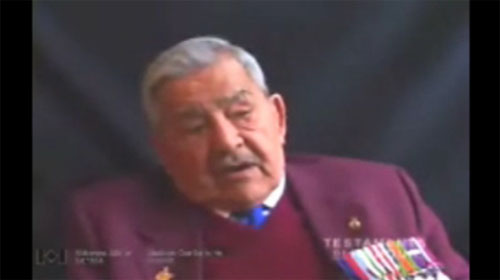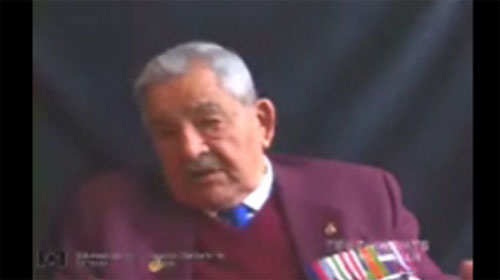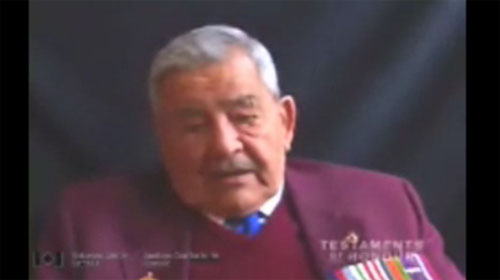The Elderly
Heroes Remember
The Elderly
Transcript
The Indians I guess a year, many generations ago,
thousands of years ago.
If they had an individual with,
within a group if the individual took sick or got too old
to be able to hold up their end of the whole issue
they were left behind.
If they didn't do away with them right away,
get them out of misery they left them behind to expire
whatever way they expire.
That was nature in, in, at work.
Today, like I said before, they're teaching our children
to not be responsible for their actions
because somehow or another they can disappear out of it,
out of it and come back later without suffering any ill effect.
Now alot of our parents today are thinking that they should
go back to that but our laws won't let them.
Why I don't know. It's a, that is a, an issue
that I think the older people should get together with,
with the young people and knock it around some.
And come to a conclusion where it's good for everybody.
Not just for the young, but for the older too.
Some cases, in some circles, the older people don't mean anything
anymore because they are old.
But anytime they are in trouble
they come to the old to get some sage advice
only because they know
that that old person has been through it already.
Description
Mr. Parker talks about the differences between the younger and older Native generations today.
Richard Allen Parker
Richard Allen Parker was born in Vernon, BC on May 27, 1917 to a First Nations family. He talks about his early years, the prejudice that he faced, and the meaning of being First Nations. He left home at an early age to work in the mines. He talks about joining the PPCLI in 1942, fighting the SS and Hitler Youth and his time in Algiers and Italy.
Meta Data
- Medium:
- Video
- Owner:
- Veterans Affairs Canada
- Duration:
- 02:36
- Person Interviewed:
- Richard Allen Parker
- War, Conflict or Mission:
- Second World War
Related Videos
- Date modified:








